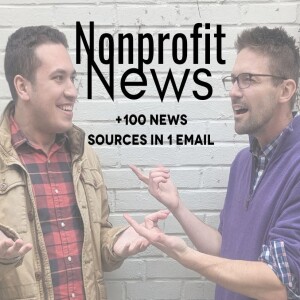
Using the Whole Whale - A Nonprofit Podcast
Business:Non-Profit

The Pew Research Center's study on American perspectives towards data privacy highlights growing concerns and confusion about personal data usage. Most Americans are uneasy about how their information is handled by companies and the government, with a significant 67% admitting they understand little about what is done with their personal data. This concern extends to social media, where 77% of Americans distrust social media CEOs to responsibly manage user privacy.
70% of Americans also distrust companies to make responsible use of AI in their products. The study underscores the national relevance of data privacy, influenced by ongoing debates over regulating AI and protecting online data, emphasizing its impact on everyday life through choices in passwords, privacy policies, and personal data security measures.
Read more ➝
Regulator vows crackdown on ‘squeamish’ charities rejecting donations
| the Guardian
Orlando Fraser, head of England's Charity Commission, criticizes charities for rejecting donations on moral grounds, urging them to consider the impact on service provision to beneficiaries. He emphasizes that decisions to refuse funds should not be based on trustees' personal biases but on substantial justifications, amidst growing concerns about accepting unethical donations. This stance has sparked debate about the balance between ethical funding and operational needs, with the Commission updating guidelines on lawful and reputational considerations in donation acceptance.
The Ukraine Airbnb initiative and the weaknesses of ‘disintermediated’ giving | Blog - Alliance magazine
The Ukraine Airbnb initiative, a response to the Russian invasion of Ukraine, highlights the complexities of modern philanthropy. As an alternative to traditional donations to nonprofits, which raised £420 million through the Disasters Emergency Committee, this initiative involved booking but not occupying Airbnb rooms in Ukraine. This approach directed £15 million directly to property owners in just one week. Celebrated as a democratization of philanthropy, it allowed donors to bypass charities, though it faced criticism for potentially excluding the most needy and exacerbating economic issues like inflation. This form of *disintermediated giving raises important questions about efficiency, direct impact, and the ethical complexities of modern charitable efforts.
Announcing Kiva’s Bold New Impact Strategy: The Nonprofit Microfinance Pioneer Shares its Refined Approach — And Unveils the Process Behind its Development | NextBillion
Kiva, a pioneer in nonprofit microfinance, has announced a new impact strategy, marking a significant evolution in its approach. Since its inception in 2005 as one of the world's first crowdfunding platforms, Kiva has enabled over 2.2 million lenders to fund over $2 billion in loans to more than 5 million entrepreneurs globally. Key to its strategy is the formation of deep, values-aligned partnerships with nearly 600 organizations in 95 countries, allowing for a significant local impact on a global scale. Innovations such as social-underwriting in the U.S., partnerships with community organizations, and the establishment of Kiva Capital for larger loans have been instrumental in extending support to underserved entrepreneurs, including refugees.
More Episodes
 2022-02-23
2022-02-23
 312
312
 2022-02-16
2022-02-16
 350
350
 2022-02-03
2022-02-03
 370
370
 2022-02-01
2022-02-01
 289
289
 2022-01-25
2022-01-25
 315
315
 2022-01-11
2022-01-11
 338
338
 2022-01-06
2022-01-06
 284
284
 2021-12-28
2021-12-28
 348
348
Create your
podcast in
minutes
- Full-featured podcast site
- Unlimited storage and bandwidth
- Comprehensive podcast stats
- Distribute to Apple Podcasts, Spotify, and more
- Make money with your podcast
It is Free
- Privacy Policy
- Cookie Policy
- Terms of Use
- Consent Preferences
- Copyright © 2015-2024 Podbean.com





